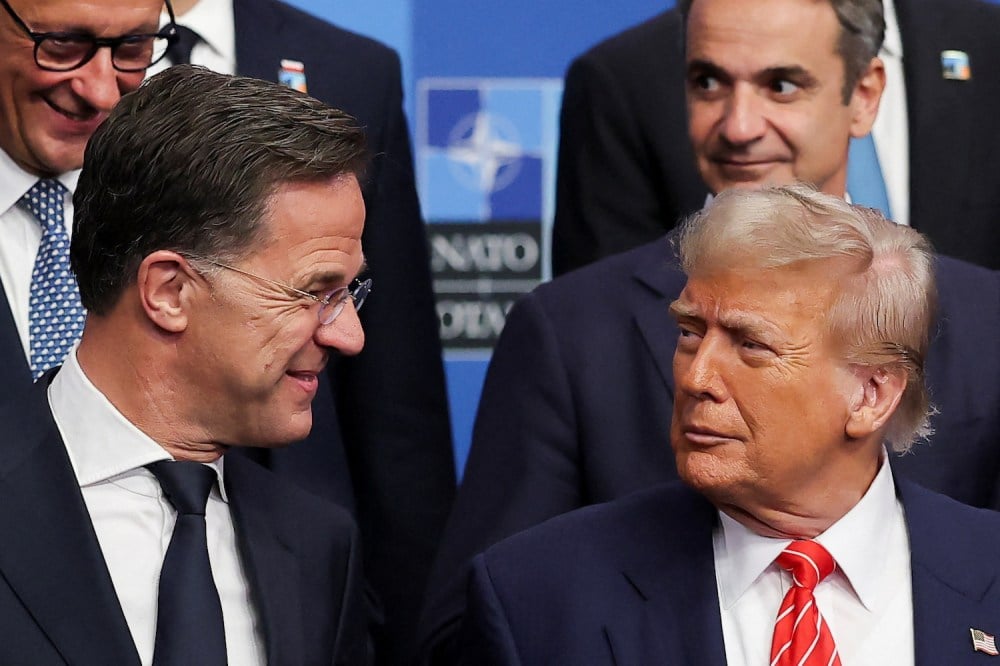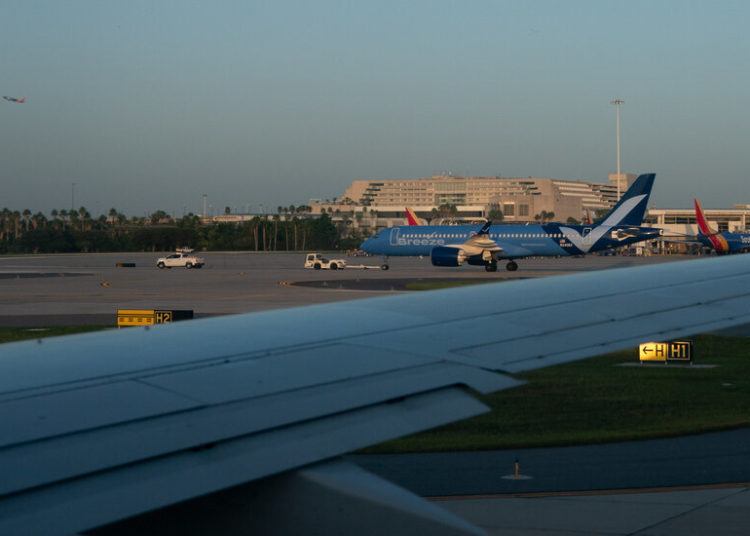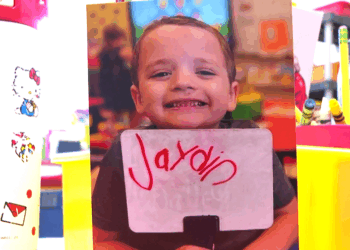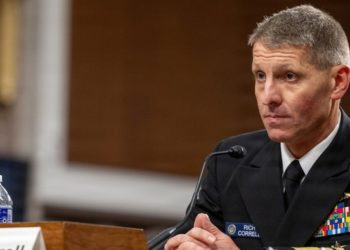Welcome back to Foreign Policy’s Situation Report, brought to you by at least two different types of cold medicine as the changing weather and jet lag take their toll on your co-authors. But the NATO summit is officially over, and we’re back to regular programming on Thursday (and back in Washington next week).
Alright, here’s what’s on tap for the day: NATO and Trump play nice, we hear from the alliance’s newest member, Sweden, and a kid asks the NATO secretary-general a question.
Making Trump Happy
The 2025 NATO summit in The Hague was all about making U.S. President Donald Trump happy. The red carpet was rolled out for him, both literally and figuratively. Trump was hosted by the Dutch king and queen in the royal palace, making him the first U.S. president to stay there.
NATO Secretary-General Mark Rutte went above and beyond to shower Trump with flattery and ensure his experience in The Hague was positive. “He’s a good friend. I trust him,” Rutte said of Trump at a press conference on Wednesday. Rutte called Trump a “man of peace” but also a “man of strength.” He brushed off questions from reporters as to whether his ingratiating behavior toward Trump was potentially “demeaning” and made him look “weak.”
Many of Rutte’s statements at the summit echoed Trump’s own self-congratulatory rhetoric or past criticism of the alliance. The NATO chief praised Trump for taking “decisive” action against Iran and repeatedly contended that the president should be credited with pushing allies to commit to a new defense spending target of 5 percent of GDP.
“I don’t know if I did it, but I think I did,” Trump told reporters in a press conference toward the end of the summit on Wednesday.
A change of tune. Trump has railed against NATO allies over defense spending for years, often mischaracterizing the way the alliance is funded in the process. Trump has also raised concerns among NATO allies that he might take steps to withdraw the United States from the alliance.
It’s clear that Rutte and other NATO allies are desperate to reverse that trend, and avoiding antagonizing Trump appeared to be one of the primary objectives of the summit—as evidenced by both the shorter schedule and the diminished focus on Russia’s ongoing war in Ukraine, on top of the efforts to applaud the president for the 5 percent goal.
Trump’s initial response to these overtures was more ambivalent than NATO allies might have liked. Even before he touched down in The Hague, Trump shared a poll on Truth Social showing that 57 percent of the MAGA Republicans who form his core base would support him if he pulled the United States out of NATO.
The president’s ambiguity extended to NATO’s Article 5 mutual defense clause. When asked by reporters on Air Force One whether he was committed to Article 5 while en route to The Hague, Trump said it “depends on your definition” of the principle. But after waking up at the Dutch king’s palace on Wednesday—evidently in an excellent mood—Trump changed his tune. “We’re with them all the way,” he said when asked about his commitment to Article 5. Rutte had also said earlier in the day that Washington was “totally committed” to NATO’s mutual defense clause.
“No opt-out”—sort of. There had also been scant discussion at the summit on Trump’s statement last week that he thinks the United States should be exempt from the 5 percent spending requirement, even as Rutte chided other holdouts Spain and Slovakia by saying that “NATO has no opt-out.”
The NATO chief defended Trump, noting that part of the goal is 3.5 percent core defense spending and saying that the United States is “more or less there.” The United States, which has the highest defense budget in the world by far, currently spends around 3.4 percent of its GDP on defense. The other element of the 5 percent goal is spending 1.5 percent on defense-related infrastructure, which Rutte said “we can safely assume” Washington meets, citing U.S. investments in areas such as cyber-defense and security.
In The Hague Summit Declaration released on Wednesday, NATO still committed all members to investing “5% of GDP annually on core defence requirements as well as defence-and security-related spending by 2035.”
In his Wednesday press conference, Trump described the 5 percent target agreement as a “monumental win for the United States because we were carrying much more than our fair share.” He also called it a “big win for Europe and for, actually, Western civilization.”
European Unison? NATO’s European members also used the summit—and the commitment to the 5 percent goal—to signal that the continent is finally taking responsibility for its own defense and will no longer rely on the United States as the primary guarantor of its security.
This theme has been picking up steam within NATO for years, especially in the wake of Russia’s invasion of Ukraine in 2022. But this sentiment has also clearly been pushed into overdrive by Trump’s return to the White House, particularly in the wake of the fireworks at the Munich Security Conference in February.
“This summit was geared up to Donald Trump,” Czech Foreign Minister Jan Lipavsky told SitRep in an interview, “not to appease him but maybe to convince him that Europe is serious.”
It seems to have succeeded. “Without the United States, they couldn’t really have NATO. It wouldn’t work. It wouldn’t work. It will in the future because now they’re paying much more money,” Trump said Wednesday. “And I left here differently. I left here saying that these people really love their countries, it’s not a rip-off, and we’re here to help them protect their country.”
Snapshot
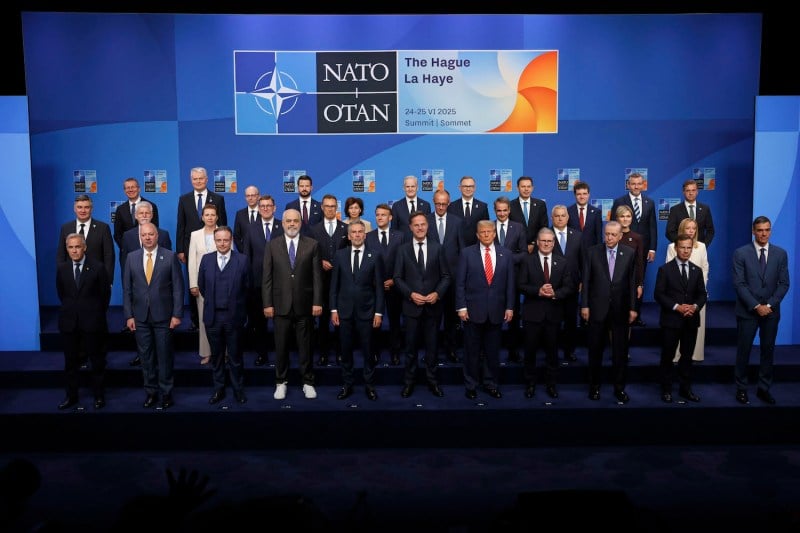
Hot Mic
SitRep spoke with Pal Jonson, Sweden’s defense minister, to find out how the newest member of NATO feels about the summit, the 5 percent target, Ukraine, and Trump. Here’s some of that conversation, edited for length and clarity.
Foreign Policy: It’s been a little over a year since Sweden joined NATO. How are you feeling about the alliance and this year’s summit?
Pal Jonson: We’re entering the alliance at its biggest transformation stage since the end of the Cold War. That’s of course a challenge for us but also a challenge for all allies because we’re engaging in a much stronger commitment [to] the alliance for the ability to deter and defend.
What is happening in Northern Europe is that Sweden and Finland, which used to be areas of uncertainty for military planning, are now areas of predictability—especially since we are right now at the intersection of where a lot of military attention is going due to Russia’s invasion of Ukraine.
FP: A lot of the conversation at the summit has been around Trump’s commitment to NATO. How concerned are you about that?
PJ: Well, we of course listen to what the U.S. administration says, and they’ve been very steady on communicating from the president down that Article 5 is there and that the United States is not withdrawing from the alliance, which we greatly appreciate.
But the Europeans have to take a larger responsibility for their own security. We are aware of the long-term trajectory that the primary theater for this administration is going to be in the Indo-Pacific, and now we have the capability targets [and] the financial commitment on the 5 percent, so we know what we need to do.
This is really where Europe is stepping up. You see increasing European leadership and us actually rising to the occasion, and I think that’s a positive thing.
FP: As the newest member of NATO, if Ukraine’s path to NATO is blocked as a consequence of any negotiated settlement to end the war, would you support that?
PJ: It’s important to capture the nuances of what’s actually being said. I take note of the U.S administration’s statement that NATO membership cannot be a part of a peace negotiation settlement, and there isn’t unity within the alliance as such [on allowing Ukraine into NATO].
But I think it’s vital that we read Article 10 of the Washington Treaty that all European countries should have the right to become NATO members when they fulfill the criteria, and that also includes Ukraine. It’s a linchpin of the European security order that remains.
Russia should not have a veto over possible Ukrainian NATO membership. Of course, it won’t happen tomorrow, but I think it’s very important that Ukraine has an EU and NATO membership perspective.
Quote of the Day
“Daddy has to sometimes use strong language.”
—Rutte on Wednesday, referring to Trump’s use of profanity while describing the Iran-Israel conflict the day before. Frustrated with the cease-fire’s shaky start, Trump had told reporters, “We basically have two countries that have been fighting so long and so hard that they don’t know what the fuck they’re doing.”
Spotted Around the Summit
A hastily scribbled NATO bingo card containing buzzwords such as “hybrid,” “resilience,” “deter,” “domains,” and “disruptive”; a Kim Jong Un impersonator; and a couple of kid reporters, one of whom used the last question of Rutte’s Wednesday press conference to ask if children should trust that Rutte can bring peace to the world.
The post Stockholm Syndrome in The Hague appeared first on Foreign Policy.
